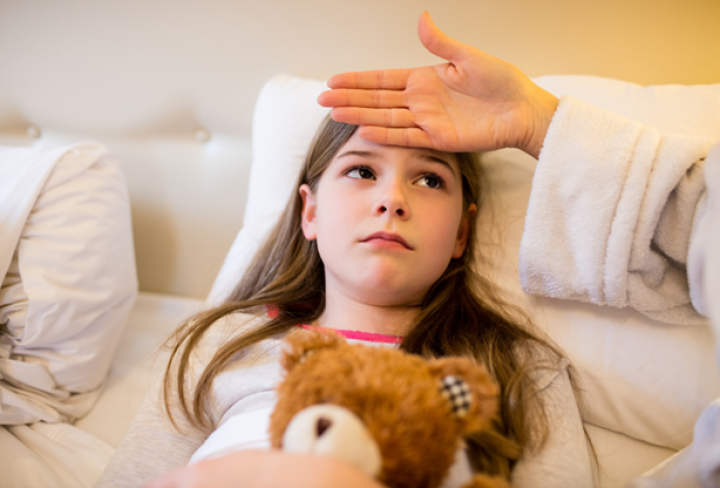Meningitis is a serious infection that affects the membranes of the brain and spinal cord.
It is more common in infants and young children.
It is most commonly caused by a bacterial infection, though it can also be caused by a viral infection, a fungus, or even parasites.
It is important to seek medical attention immediately, as meningitis can be fatal if left untreated.
Symptoms of Meningitis
• High fever
• Headache and Vomiting
• Stiff neck
• Lack of energy and Confusion
• Seizures
• Sleepiness
• Sensitivity to light
• Rash
Causes of Meningitis
– Viral infections
– Bacterial infections
– Fungal infections
– Parasitic infections
– Non-infectious causes (certain medications or autoimmune diseases)
Diagnosis of Meningitis
Physical Examination: A doctor may look for signs of meningitis, such as a stiff neck, sensitivity to light, and a bulging fontanelle (the soft spot on the baby’s head).
Laboratory Tests: These may include a lumbar puncture (spinal tap) to collect cerebrospinal fluid (CSF) for testing.
Imaging Studies: Doctors may order imaging tests such as a CT scan or MRI to look for signs of meningitis.
Treatment of Meningitis
Treatment of meningitis in children depends on the cause of the infection.
Bacterial meningitis: It is usually treated with antibiotics given intravenously.
Viral meningitis: Most cases improve without treatment and may not require antibiotics.
Fungal meningitis: It is treated with antifungal medications given intravenously.
Children with meningitis may also be given supportive care, such as fluids and oxygen, to help them recover.
Tips to Deal with Meningitis
1. Follow your doctor’s advice: Your doctor is the best source of information when it comes to treating meningitis in children. Make sure to follow all recommendations for treatment and follow-up care.
2. Monitor your child’s symptoms: Meningitis can have serious and potentially life-threatening complications. Pay close attention to your child’s symptoms and report any changes to your doctor immediately.
3. Get plenty of rest: Rest is essential for helping your child recover from meningitis. Make sure they get plenty of sleep and take frequent naps throughout the day.
4. Stay hydrated: Meningitis can cause dehydration, so make sure your child is drinking plenty of fluids to keep them hydrated.
5. Eat nutritious foods: Eating nutritious foods can help your child’s body heal and recover from meningitis. Offer them a variety of healthy foods such as fruits, vegetables, lean proteins, and whole grains.
6. Practice good hygiene: Good hygiene practices can help prevent the spread of meningitis. Make sure your child washes their hands regularly and keeps their bedding and clothing clean.
Meningitis in Children: Myth and Fact
Myth: Meningitis is contagious.
Fact: Bacterial and viral meningitis are contagious, but fungal meningitis is not.
Meningitis in Children: Myth and Fact
Myth: Meningitis is always fatal.
Fact: Meningitis can be serious and even fatal; however, in contrast, many children with meningitis make a full recovery with appropriate medical treatment.
Can Diet and Exercise help children with Meningitis?
Meningitis is an inflammation of the lining of the brain and spinal cord that is caused by a variety of viruses and bacteria.
While there is no specific diet or exercise plan for children with meningitis, it is important to ensure that children receive adequate nutrition, hydration, and rest.
Limit processed foods and sugary snacks, providing your child with plenty of fluids throughout the day.
When it comes to exercise, it is also important to note that children should avoid contact sports and activities that involve rapid head movement while they are recovering from meningitis.
Overall, eating a balanced diet, staying hydrated, and engaging in moderate exercise can be beneficial for children with meningitis.
However, it is important to consult with a doctor before engaging in any physical activity.

